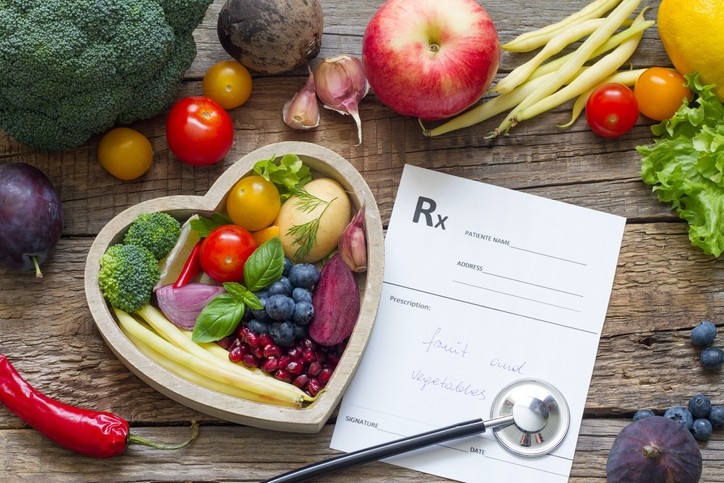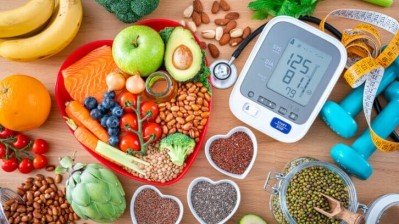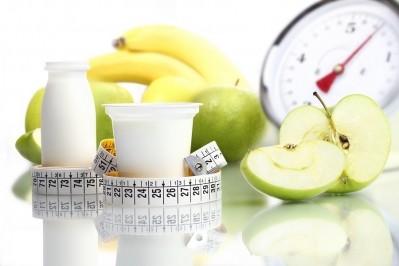Prescription produce programs associated with better health, food security – bolstering food as medicine movement

While not new, prescription produce programs, in which health care providers and insurers give vouchers for free or discounted fruits and vegetables to people with diet related disease or food insecurity, are gaining awareness and popularity in the US after the Biden-Harris Administration, the American Heart Association, the Rockefeller Foundation and other public health advocates committed to implementing and evaluating their effectiveness through select partnerships. https://www.foodnavigator-usa.com/Article/2023/01/16/soup-to-nuts-podcast-investing-in-food-as-medicine
Their commitments are part of the White House’s National Strategy on Hunger, Nutrition and Health and include $2.5m earmarked by the US Department of Health and Human Services through the Indian Health Services agency https://www.hhs.gov/about/news/2023/04/26/hhs-announces-25-million-produce-prescription-programs-indian-country.html to pilot a National Produce Prescription Pilot Program, and a partnership between the US Department of Veteran Affairs and the Rockefeller Foundation to test the impact of fresh produce on veterans’ health. https://www.foodnavigator-usa.com/Article/2023/04/26/food-as-medicine-gains-traction-as-veterans-health-rockefeller-foundation-pilot-prescription-produce
First large scale study supports effectiveness of prescription produce programs
Despite this high-profile support, the connection between prescription produce programs and health outcomes is not as well documented as many insurers would like to see before they invest in the programs as preventive health measures.
The study published last week in the American Heart Association’s peer-reviewed journal Circulation: Cardiovascular Quality and Outcomes is believed to be the largest one to examine the impact of produce prescriptions.
It pooled data from 3,881 adults and children participating in 22 previously unevaluated produce prescription locations in 12 states from 2014 to 2020. Participants had or were at risk of poor cardiometabolic health and were recruited from clinics in low-income neighborhoods. They were provided an average of $63 per month – the low end of the range that USDA estimates a person needs to spend to eat the recommended daily amount of fruits and vegetables.
After a median participation of six months, adults in the programs ate on average 0.85 additional cups of produce and children ate an additional 0.26 cups per of produce per day.
Routine testing of blood pressure, weight and height; and hemoglobin A1c to measure blood sugar was conducted at the start and end of the programs and showed adults who had high blood pressure during enrolment had on average a decrease in their systolic blood pressure of 8 millimeters of mercury (mm Hg) and 5 mm Hg in their diastolic blood pressure. Blood sugar levels in adults with diabetes dropped on average 0.29 to 0.58 percentage points. BMI also improved with a reduction of 0.52 kilograms per square meter in adults with obesity, but the BMI of obese children did not change.
Improving health outcomes by improving food security
The study also showed prescription produce programs decreased by a third food insecurity – another factor associated with chronic disease, including heart failure, heart attack and stroke.
Simply having access to additional food also could have contributed to the participants’ health improvements, the study’s lead author Kurt Hager, an instructor at UMass Chan Medical School, said in a statement.
“We know that food insecurity impacts health through several important pathways, including overall dietary quality, but also through stress and anxiety, mental health and tradeoffs between paying for food and other basic needs, such as housing costs, utilities and medications,” he said. “These results indicate produce prescriptions may lay an important foundation for improved health and well-being.”
The research also supports the “potential of subsidized produce prescriptions to increase consumption of nutritious fruits and vegetables, reduce food insecurity and, hopefully, improve subjective and objective health measures,” added Mitchell Elkind, chief clinical science officer at the American Heart Association.
He added in a statement that the AHA’s new Food Is Medicine Initiative announced last September during the White House Conference on Hunger, Nutrition and Health alongside The Rockefeller Foundation will focus on supporting additional research to measure the impact of produce prescriptions, including randomized control trials to offset bias and “prove more rigorously the benefits of produce prescription programs.”
[Editor’s note: Interested in learning more about how AHA, the Rockefeller Foundation, Instacart and other stakeholders are advancing food as medicine and the potential positive impact of prescription produce programs? Please join FoodNavigator-USA for second virtual Futureproofing the Food System summit this fall. Explore the agenda and register HERE.]
























